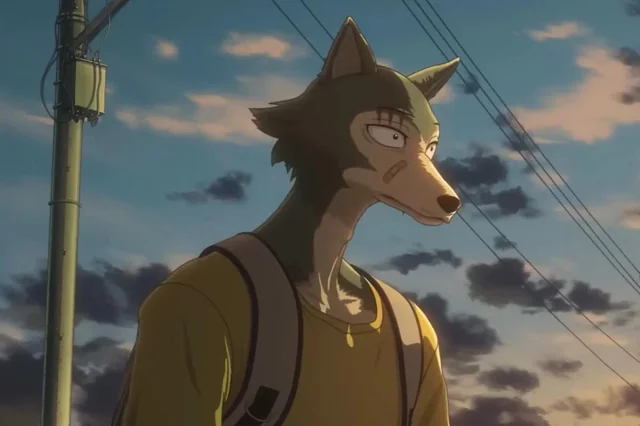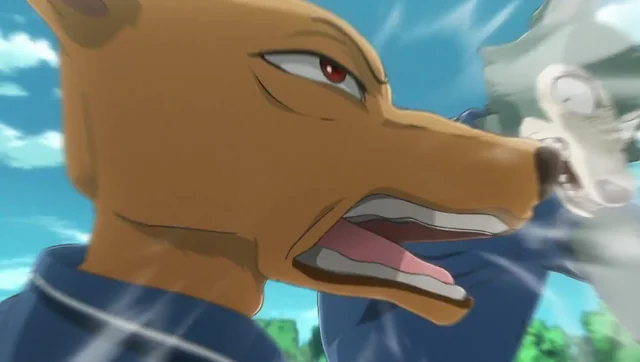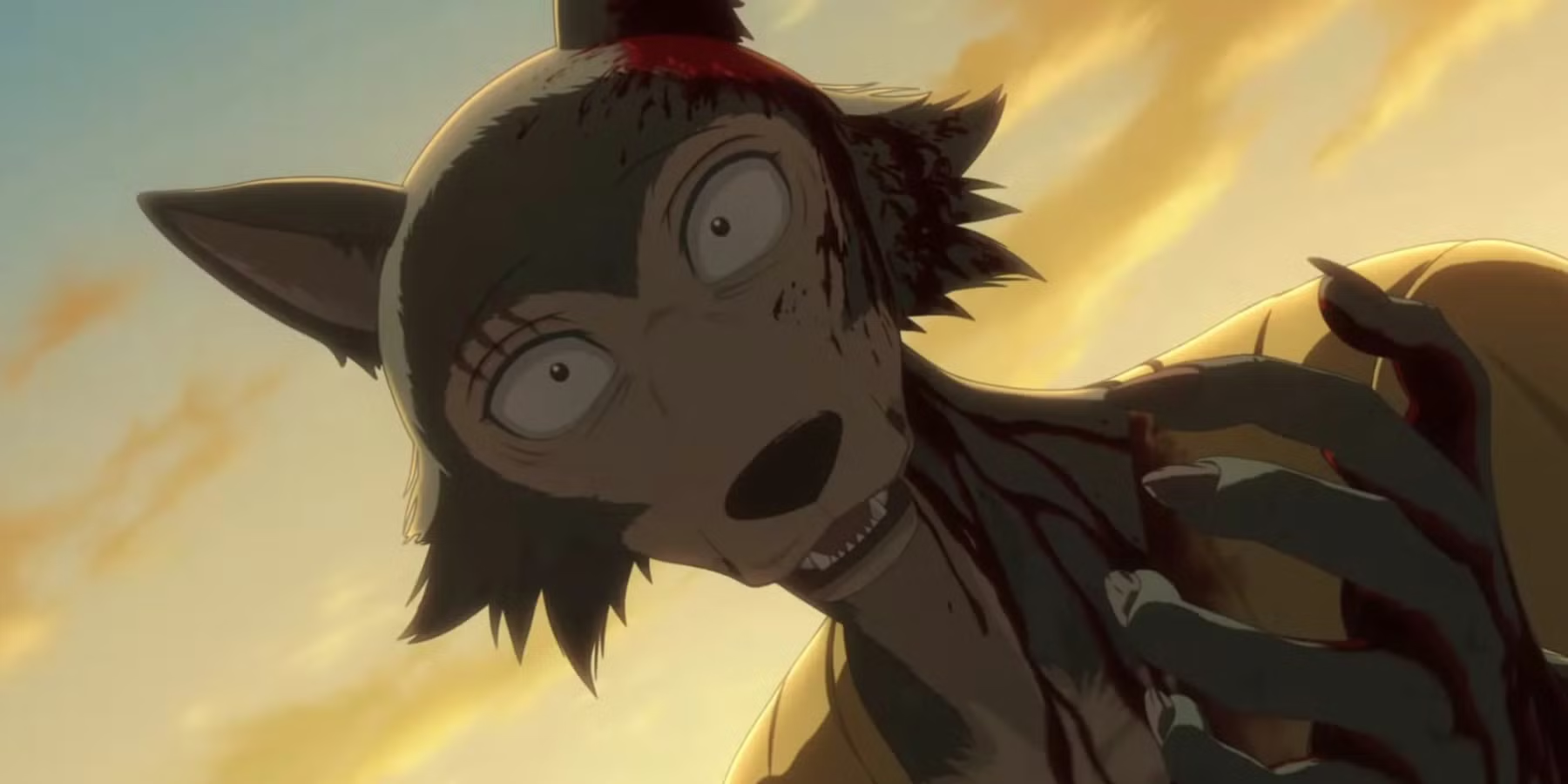The third season of Beastars masterfully delves into the complex dynamics of herbivore-carnivore relationships and interspecies interactions, using them as powerful metaphors for identity politics. Building on its previous exploration of segregation and prejudice tied to birth identity, the narrative advances further into even more contemporary and pressing societal issues.
This season stands out as the darkest yet, with the underworld playing a pivotal role in shaping a large-scale conspiracy that threatens to redefine the fragile equilibrium between carnivores and herbivores. Legoshi’s personal journey intertwines deeply with these conflicts as he grapples with his own identity, placing himself in increasingly perilous situations. The mid-season cliffhanger leaves his fate uncertain, amplifying the tension.
Is Legoshi Dead?

Legoshi’s understanding of Melon’s plight as a hybrid—both herbivore and carnivore—evokes deep empathy, reminding him of his own mother, Leano, who endured relentless hardship due to her hybrid lineage, ultimately leading to her tragic demise. Despite Yahya, the former Beastar, enlisting Legoshi to bring Melon to justice for his crimes, Legoshi’s sympathies for Melon’s struggles cloud his judgment. Seeing Melon as a victim of systemic neglect towards hybrids, Legoshi sought dialogue rather than confrontation, even after narrowly surviving an earlier encounter with the dangerous criminal.
However, this compassion blindsided Legoshi, who fell into a carefully laid trap at the Droplet of the Reaper. Melon’s twisted delight in exploiting Legoshi’s kindness culminated in him binding Legoshi and throwing him off a cliff. As Legoshi plunged into the shallow waters below, his fate was left hanging in suspense.
Meanwhile, Melon’s infiltration of Haru’s college as a professor introduces a sinister threat to Legoshi’s girlfriend. Armed with knowledge of Legoshi’s personal life, Melon’s malevolence casts a foreboding shadow over Haru’s safety, with her potential discovery of the truth about Legoshi’s circumstances adding another layer of complexity to the story.
Louis’s Crossroads

Louis finds himself at a critical juncture, torn between fulfilling his adoptive father Ogma’s ambitions for the Horns Conglomerate and pursuing his ideals of creating a fairer society. His exposé of the Kines energy drink, which incited predatory urges among carnivores, not only disrupted a dangerous enterprise but also jeopardized the business interests of Azuki’s family, with whom he is betrothed. This creates a rift between Louis and Ogma, who had arranged the marriage for corporate gain.
Louis’s internal conflict extends to his personal life, as his feelings for Juno become increasingly evident despite his reluctance to acknowledge them due to societal stigmas against interspecies relationships. Ultimately, Louis must choose between his preordained path within the Horns Conglomerate and his desire to fight for coexistence, as well as between Azuki and Juno. The loyalty of his former Shishigumi comrades hints at the possibility of Louis returning to the Black Market, where he once led with authority.
Melon’s Agenda and Yahya’s Ideals
Melon’s sinister agenda, driven by his identity crisis and disdain for coexistence, centers around using a new drug, Melda, to sabotage any efforts at harmony between carnivores and herbivores. As a hybrid, Melon’s lack of emotional and sensory receptivity fuels his hatred for the idea of unity, which he views as futile.
Conversely, Yahya’s unwavering commitment to justice and maintaining societal order pits him against Melon’s destructive vision. Despite their differing methods, Yahya’s own prejudices against interspecies relationships reflect a rigidity that parallels Melon’s extremism. Whether Yahya can overcome his absolutist worldview and confront Melon’s ideology without succumbing to his biases remains a pivotal question for the series.
Interspecies Relationships Under the Spotlight
The season’s nuanced examination of interspecies relationships resonates with real-world parallels. Haru and Legoshi’s tumultuous relationship underscores the challenges of defying societal expectations, while Louis and Juno’s budding connection highlights the stigma surrounding unconventional pairings. The struggles of hybrids like Melon and Legoshi’s mother further emphasize the systemic barriers faced by those born of mixed heritage.
Societal pressures and generational divides complicate these relationships, with older generations condemning what they perceive as unnatural unions. The inherent tension between predatory instincts and genuine affection also raises difficult questions about the feasibility of interspecies coexistence. With adversaries like Melon working to undermine these efforts, the path to harmony appears fraught with challenges.
The central theme of coexistence between carnivores and herbivores is revisited with greater intensity this season. Legoshi’s evolving perspective challenges his earlier simplistic beliefs, as he encounters individuals like Sagwan the spotted seal, who explains the natural predatory cycles in the aquatic world. This nuanced understanding contrasts with the authorities’ conflicting attempts to promote harmony while perpetuating segregation, highlighting the complexities of coexistence.
Legoshi’s dismay at the Black Market’s meat-eating festival exemplifies the stark divide between modern sensibilities and entrenched traditions. Yet, Haru’s acceptance of Legoshi’s past actions and her curiosity about the Black Market reflects a growing recognition of the need to embrace authenticity. The final part of the season promises to address these tensions, with acceptance of one’s nature likely emerging as the key to coexistence.



